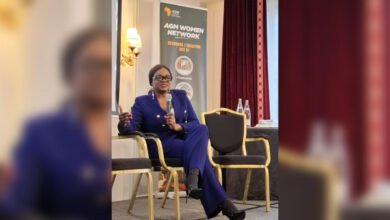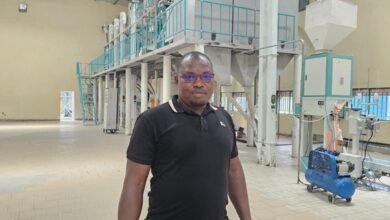Health: the Tunisian platform lays the foundations for south-south cooperation
While African states have all, or almost all, more ambitious health policies, ensuring access to quality care for their populations remains a major challenge. For today, for tomorrow even more as the continent will see its population double and reach more than 2 billion inhabitants. To meet this challenge, we will have to think of new models, innovate, appeal to the NIC, the private sector and … in addition to South-South cooperation. Axes have been set in this direction in Tunisia where the health sector, advanced in terms of industrialization, exports its know-how.
By DBM
When talking about health in Africa, a figure sums up everything: Africa produces only 3% of its drug needs. This is little. However, it is also a great potential. While African states have all, or almost, adopted more ambitious policies to offer their population a more efficient health system, with modernization of hospital infrastructure, implementation of the CMU _ as such, the example of Rwanda which has reached a coverage of nearly 9O% of its population, the challenges remain enormous. For today, with 1.2 billion inhabitants. For tomorrow especially, when Africa will have more than 2 billion people in 2050. To meet this challenge, we will have to think of new models, innovate, call on the NTIC, the private sector … and south-south cooperation.
As such, Tunis, which is positioning itself as a reference platform for the export of health-related services, has adopted this approach. At the initiative of the private sector. Sanitary evacuation, pharmaceutical industry, thermalism … As an indication, Tunisia ranks second in Africa, behind South Africa. However, while African states are striving to « cure at home », if Tunisia has a card to play, it is in the transfer of jurisdiction. Here again, it is the Tunisian private sector that appears as a pioneer. With the example of Teriak, a Tunisian pharmaceutical group headed by Sara Masmoudi.
« Today exporting drugs to sub-Saharan Africa looks like a gold rush. What do we Tunisians have more? «
« Teriak is a Kilani Group company that has been operating in the healthcare industry for 30 years. We manufacture generic and licensed drugs. We decided to export from 2013, which is rather late. Before that, it’s more anecdotal. We have dedicated teams that have gone to the markets. And today we hold nearly 300 licenses outside Tunisia. This may seem satisfactory and yet this model is insufficient. That is why we very soon opted to locate in the target countries. We went in search for opportunity. « Which came to Cameroon, with Cinpharm, a dormant laboratory acquired by the group in 2015. » Today exporting drugs to sub-Saharan Africa looks like a rush gold. In any strategy, what is needed is differentiation. What do we Tunisians have more? A quality medicine. A provisionally interesting price since the devaluation of the dinar. However, in the short term, we will not be able to compete with India. We are not creators and we will never be cheap generics. What we need is to meet the needs of the countries we are targeting. « Especially as the demand is there and the Tunisian expertise in the recognized sector. « The report is simple: a manufacturing virtually non-existent or very little developed, uncontrolled distribution channels and with this plethora of counterfeit drugs and a parallel market explosion; exorbitant prices. One can add to this table, the fact that international institutions operate by giving free drugs which has a social purpose but not economic, and therefore not sustainable. What countries want today is to be autonomous in the production of medicines. Tunisia can be the partner of choice. Because technically, we have a developed industrial tool, more than thirty manufacturing units, and we are supervised very closely by health authorities. «
Thus, according to the model carried by Teriak, Tunisia can position itself on the the pharmaceutical industry market in Africa among others, to meet real needs, not only via export, but especially through the establishment of local industrial units.
« We are moving towards regional and even continental regulation with the African Medicines Agency, which is part of a spirit of harmonization »
A relevant strategy, provided that a regional approach is considered, suggests Charles Boguifo, President of the National Order of Pharmacists of Ivory Coast. « When we talk about the market, Ivory Coast is 500 million US dollars worth of drugs. At the UEMOA scale, we are going to 1 billion 750 million, of the ECOWAS more than 4 billion. The market becomes much more interesting. At this level, within ECOWAS things are changing. With the establishment of a regional pharmaceutical plan in the 15 countries to develop pharmaceutical industries, strengthen legislation, quality control, one of the problems in our countries … We are moving towards a regional and even continental regulation with the African Medicines Agency, which is part of a spirit of harmonization. The market becomes important. So it’s time to invest in our countries. «
« Today there is no Africa in health »
The market is becoming important and therefore attractive to investors, confirms Adel GOUCHA, General Manager of the group Abraaj, Emirati private equity firm which invests in growing markets in Africa, Asia, Latin America, and the Middle East. East and Turkey. « Some figures prove it: Africa has 13% of the world’s population; 24% of morbidity but 3% of pharmaceutical production. The majority of the market is import and counterfeit. Accordingly, the growth rate of pharmaceutical product demand exceeds 10% against 2/3% in Europe. The penetration rate of generics is less than 30% while in Europe it is close to 70%, and the cost of generics much cheaper, 50% in some cases. The market is there. » And, with population growth, urbanization, the emergence of the middle classes, it will grow. « As purchasing power increases, spending increases in three priority areas: housing, food and health care. That’s why private investors are here. « Starting with the Abraaj Group. « We at Abraaj have invested 350 million just in North Africa, in 13 private clinics in Morocco, Tunisia and Egypt. And we will continue to do so because it is a strategic sector. » Accordingly, , it highlights the challenge of African, Tunisian and other producers, size. « The real problem is the size. If we want to capture the real international flows, we must go to size. But today there is no Africa in health. Apart from a few exceptions. For North Africans, if they are able to find an integration in Francophone Africa it is already a big step. « And in turn to invite to adopt a regional market approach. « You have to start not resonate in the regions. Unfortunately today in Tunisia the market is fragmented, with thirty actors but no regional champions. It is very important to think about consolidation. With 5 to 10% of export, the size is sufficient for the Tunisian market but not enough to go to Ivory Coast, Senegal or elsewhere to fight against the multinationals. «
« Do not think evacuation is a solution. It’s one shoot, there is no transfer of technology and today the African states all have the ambition to achieve autonomy in the health sector »
The experience of Nejib Soussia, a pioneer in medical evacuation, is more than revealing. CEO of Cameroon Assistance, he has been established for 37 years in Douala where he participates in this exchange of know-how south-south. « Today, we employ in Cameroon 108 full-time people. It is indeed a sector with a melting pot of local employment. « If this experience proves successful, today it invites us to rethink the model of medical evacuation in Africa. « Do not think evacuation is a solution. It is a solution in some cases. It is one shoot, there is no transfer of technology and today the African states all have the ambition to achieve health autonomy. Therefore, having been a pioneer since 1987, I think I can say today with the same conviction that 30 years ago, the model must evolve. We Tunisians have the means, the men, the organization, if we manage to build a clear strategy. « On the model of this company in Cameroon, the first foreign company to clinch a medical office and a private clinic. We will only progress if we think back and forth. «
Meeting the challenges of health in Africa also requires innovation. The development of NICs in the sector is also an accelerator. And here again, Tunisian expertise can contribute to the building. It already does this, through an application that has just been launched by Nejib Soussia, a new pioneer in the field. « With the Ntics, Africa is making technological leaps. Ditto in medicine. What is expensive today is to move the patient to the doctor to have this famous diagnosis. With Cameroon assistance we developed an application, here in Tunisia, which allows access to care via a smartphone. These are avenues to exploit in the future. «






